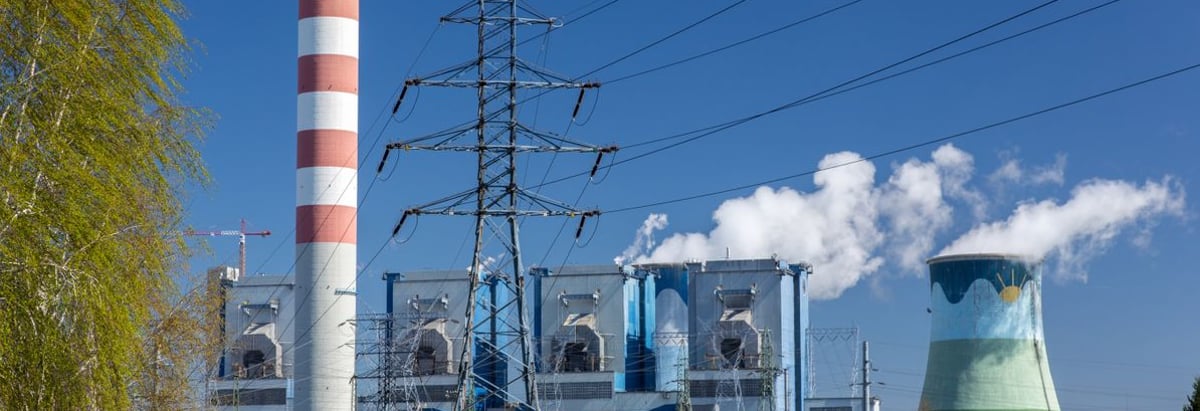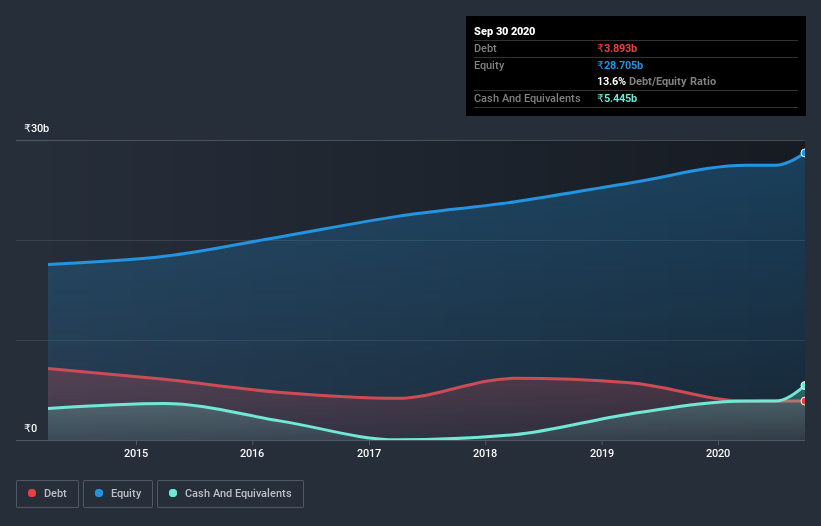- India
- /
- Renewable Energy
- /
- NSEI:GIPCL
Here's Why Gujarat Industries Power (NSE:GIPCL) Can Manage Its Debt Responsibly

The external fund manager backed by Berkshire Hathaway's Charlie Munger, Li Lu, makes no bones about it when he says 'The biggest investment risk is not the volatility of prices, but whether you will suffer a permanent loss of capital.' So it seems the smart money knows that debt - which is usually involved in bankruptcies - is a very important factor, when you assess how risky a company is. We note that Gujarat Industries Power Company Limited (NSE:GIPCL) does have debt on its balance sheet. But is this debt a concern to shareholders?
When Is Debt A Problem?
Debt and other liabilities become risky for a business when it cannot easily fulfill those obligations, either with free cash flow or by raising capital at an attractive price. Part and parcel of capitalism is the process of 'creative destruction' where failed businesses are mercilessly liquidated by their bankers. While that is not too common, we often do see indebted companies permanently diluting shareholders because lenders force them to raise capital at a distressed price. By replacing dilution, though, debt can be an extremely good tool for businesses that need capital to invest in growth at high rates of return. When we think about a company's use of debt, we first look at cash and debt together.
Check out our latest analysis for Gujarat Industries Power
What Is Gujarat Industries Power's Debt?
The chart below, which you can click on for greater detail, shows that Gujarat Industries Power had ₹3.85b in debt in September 2020; about the same as the year before. However, it does have ₹5.44b in cash offsetting this, leading to net cash of ₹1.59b.

How Healthy Is Gujarat Industries Power's Balance Sheet?
The latest balance sheet data shows that Gujarat Industries Power had liabilities of ₹2.53b due within a year, and liabilities of ₹9.43b falling due after that. Offsetting these obligations, it had cash of ₹5.44b as well as receivables valued at ₹1.06b due within 12 months. So its liabilities outweigh the sum of its cash and (near-term) receivables by ₹5.45b.
While this might seem like a lot, it is not so bad since Gujarat Industries Power has a market capitalization of ₹11.2b, and so it could probably strengthen its balance sheet by raising capital if it needed to. But we definitely want to keep our eyes open to indications that its debt is bringing too much risk. Despite its noteworthy liabilities, Gujarat Industries Power boasts net cash, so it's fair to say it does not have a heavy debt load!
Unfortunately, Gujarat Industries Power's EBIT flopped 20% over the last four quarters. If earnings continue to decline at that rate then handling the debt will be more difficult than taking three children under 5 to a fancy pants restaurant. There's no doubt that we learn most about debt from the balance sheet. But it is Gujarat Industries Power's earnings that will influence how the balance sheet holds up in the future. So if you're keen to discover more about its earnings, it might be worth checking out this graph of its long term earnings trend.
Finally, a business needs free cash flow to pay off debt; accounting profits just don't cut it. Gujarat Industries Power may have net cash on the balance sheet, but it is still interesting to look at how well the business converts its earnings before interest and tax (EBIT) to free cash flow, because that will influence both its need for, and its capacity to manage debt. Over the most recent three years, Gujarat Industries Power recorded free cash flow worth 74% of its EBIT, which is around normal, given free cash flow excludes interest and tax. This cold hard cash means it can reduce its debt when it wants to.
Summing up
While Gujarat Industries Power does have more liabilities than liquid assets, it also has net cash of ₹1.59b. The cherry on top was that in converted 74% of that EBIT to free cash flow, bringing in ₹2.5b. So we don't have any problem with Gujarat Industries Power's use of debt. Another positive for shareholders is that it pays dividends. So if you like receiving those dividend payments, check Gujarat Industries Power's dividend history, without delay!
When all is said and done, sometimes its easier to focus on companies that don't even need debt. Readers can access a list of growth stocks with zero net debt 100% free, right now.
If you decide to trade Gujarat Industries Power, use the lowest-cost* platform that is rated #1 Overall by Barron’s, Interactive Brokers. Trade stocks, options, futures, forex, bonds and funds on 135 markets, all from a single integrated account. Promoted
If you're looking to trade Gujarat Industries Power, open an account with the lowest-cost platform trusted by professionals, Interactive Brokers.
With clients in over 200 countries and territories, and access to 160 markets, IBKR lets you trade stocks, options, futures, forex, bonds and funds from a single integrated account.
Enjoy no hidden fees, no account minimums, and FX conversion rates as low as 0.03%, far better than what most brokers offer.
Sponsored ContentNew: Manage All Your Stock Portfolios in One Place
We've created the ultimate portfolio companion for stock investors, and it's free.
• Connect an unlimited number of Portfolios and see your total in one currency
• Be alerted to new Warning Signs or Risks via email or mobile
• Track the Fair Value of your stocks
This article by Simply Wall St is general in nature. It does not constitute a recommendation to buy or sell any stock, and does not take account of your objectives, or your financial situation. We aim to bring you long-term focused analysis driven by fundamental data. Note that our analysis may not factor in the latest price-sensitive company announcements or qualitative material. Simply Wall St has no position in any stocks mentioned.
*Interactive Brokers Rated Lowest Cost Broker by StockBrokers.com Annual Online Review 2020
Have feedback on this article? Concerned about the content? Get in touch with us directly. Alternatively, email editorial-team@simplywallst.com.
About NSEI:GIPCL
Gujarat Industries Power
Engages in the generation, transmission, and distribution of electricity to power purchasing companies in India.
Established dividend payer and good value.


